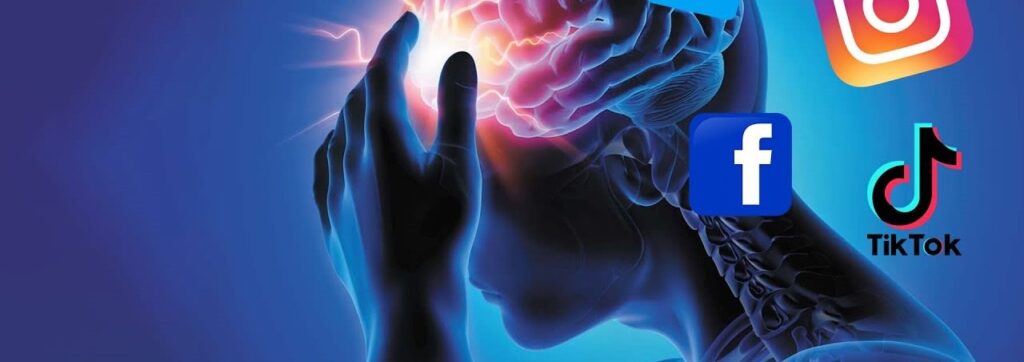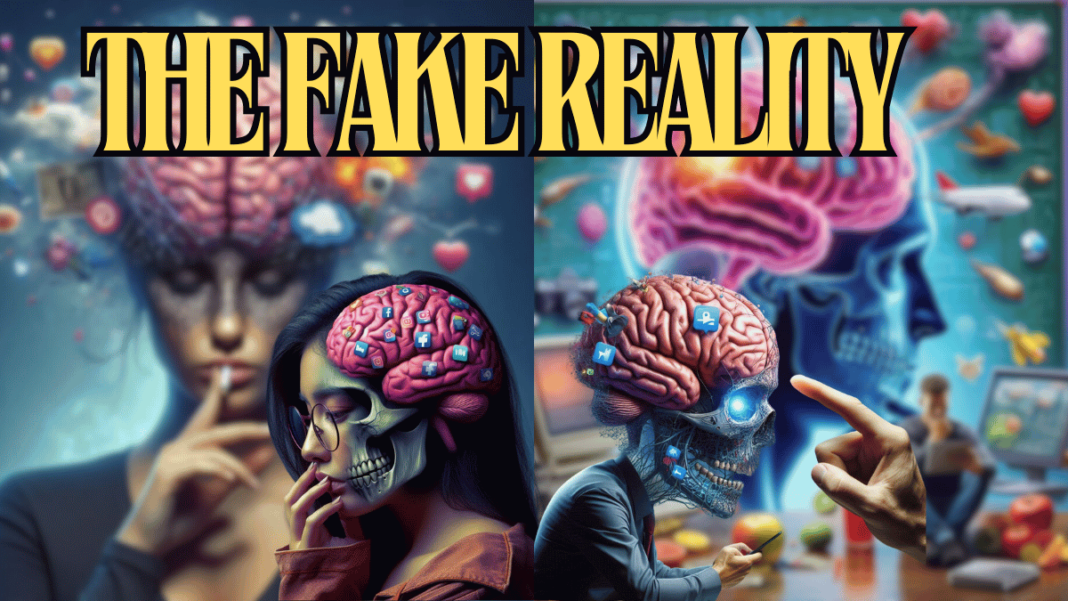In 2022, a Medrxiv survey revealed that nearly half of Americans anticipated a civil war within the next few years, while one in five believed political violence was justified. This alarming statistic reflects a broader global shift where people increasingly identify as part of opposing teams. This phenomenon is often attributed to social media, which is accused of making us more extreme, less empathetic, and more stressed through mechanisms like doom scrolling. But is this explanation too simplistic?
The Myth of the Filter Bubble
The concept of filter bubbles suggests that algorithms trap us in cycles of seeing only content that aligns with our beliefs, making extreme views seem normal. However, recent studies challenge this notion. Research from MIT and Stanford indicates that people are exposed to a diverse range of opinions online, often more varied than those they encounter in real life. In fact, a study by Pew Research found that 53% of Americans say they see at least some political content online that they disagree with.
A notable study published in Science in 2020 examined the browsing habits of over 50,000 Americans. It found that, contrary to the filter bubble hypothesis, individuals are frequently exposed to opposing viewpoints online. This exposure does not necessarily lead to ideological isolation but can create a more complex web of interactions than previously thought. Another study by the Oxford Internet Institute highlighted that while people might seek out like-minded content, they are not entirely insulated from opposing views, which they encounter through social media platforms and search engines.
Your Brain is Stupid

Our brains evolved to navigate social structures and ensure cooperation for survival. Historically, even if we disagreed with our neighbors, shared local cultures and experiences created a social glue that kept us together. For instance, anthropological studies of traditional societies show that communal activities and shared rituals were crucial for maintaining social harmony.
However, the digital age has overwhelmed these ancient social mechanisms. A study by Yale University highlights how our brains struggle to cope with the volume and intensity of online interactions, often leading to heightened emotional responses and entrenched viewpoints. The constant barrage of information can trigger stress responses similar to those experienced in physical social isolation, which was life-threatening for our ancestors.
Don’t You Dare Disagree With Me – Social Sorting
Online, our brains sort people by their opinions into teams, lacking the local social glue that helps us align with differing viewpoints. This process, called social sorting, makes it harder for us to consider opposing perspectives, increasing polarization. The engagement-driven nature of social media amplifies extreme opinions, leading us to view the other side as almost evil.
Facebook’s own internal research, as reported by The Wall Street Journal, has shown that their algorithms can amplify divisive content, exacerbating political polarization. This is supported by findings from a 2021 study published in PNAS, which demonstrated that exposure to politically charged content on social media can intensify partisan hostility. The study found that individuals who frequently encountered political content that contradicted their beliefs were more likely to develop negative attitudes towards those who held opposing views.
Recent Events and Real-World Impacts
Recent events underscore these dynamics. The January 6th Capitol riot exemplified how online echo chambers can fuel real-world violence. Social media platforms were instrumental in organizing and amplifying the misinformation and extreme rhetoric that led to the insurrection. Similarly, during the COVID-19 pandemic, misinformation and conspiracy theories spread rapidly online, leading to vaccine hesitancy and public health challenges.
The role of social media in spreading misinformation was highlighted in a report by the Center for Countering Digital Hate, which identified a small number of accounts as responsible for the majority of anti-vaccine content on platforms like Facebook and Twitter. The rapid dissemination of false information about vaccines had tangible impacts, contributing to lower vaccination rates and increased COVID-19 mortality.
A New Approach to Social Media

Recognizing the brain’s limitations, we need to adapt to the information age. The pre-social media internet, with its fractured communities and lack of engagement-driven algorithms, allowed for healthier interactions. Platforms like Reddit and specialized forums provided spaces for interest-based communities, fostering more constructive dialogue. By returning to smaller, interest-based online communities, we might mitigate the negative effects of social sorting.
The early internet, characterized by bulletin boards, forums, and blogs, fostered smaller, more manageable communities. These platforms lacked the pervasive algorithms of today’s social media, which prioritize engagement over meaningful interaction. For example, Usenet groups in the 1990s allowed users to discuss niche topics without the pressure to conform to the most engaging or provocative content. These smaller communities functioned like digital villages, where shared interests and respectful discourse were more common.
The Role of Media Literacy
Ultimately, we must remember that despite our differences, we are all on the same team: humanity. Ground News, for instance, offers tools to help users critically evaluate the information they consume, promoting media literacy and reducing polarization. By comparing how different outlets cover the same story, users can identify biases and understand the full picture.
A study conducted by the Media Insight Project found that people who are more media literate are better able to identify biased or false information and are less likely to spread misinformation. Programs that teach critical thinking and media literacy in schools have shown promise in helping students navigate the complex media landscape and develop a more nuanced understanding of news and information.
A Call to Action
As we navigate this complex digital landscape, it’s crucial to be mindful of the psychological impacts of social media. Self-awareness can help us critically assess our beliefs and the information we consume. Promoting media literacy and fostering smaller, more focused online communities can help reduce polarization and build a more empathetic society.
Ground News’ mission to highlight media biases and offer diverse perspectives is a step in the right direction. Their Blindspot feature, which shows stories covered by one side of the political spectrum and ignored by the other, helps users see the full picture. By supporting such initiatives, we can work towards a more informed and cohesive society in the digital age.
In conclusion, while social media has its downsides, understanding its effects on our brains and behavior can help us adapt and find healthier ways to engage with the digital world. By fostering empathy and critical thinking, we can bridge divides and create a more united society. This approach requires a concerted effort from individuals, educators, tech companies, and policymakers to create an online environment that promotes understanding and cooperation rather than division and hostility.


